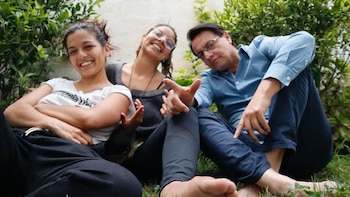
For months now, the narrative in which they say that elections could be “stolen” has been carefully planted, this narrative swarms the networks and was strengthened by Gustavo Petro's response to the question of whether he would accept the results in the event of a loss. His answer was: “if there is no fraud, yes.”
It may seem incendiary, but it is also based on the real fear that the left has that if it wins, its results will not be respected. They have never been able to govern the country and only until today, do they have a real chance of triumph. That fear they feel is directly proportional to that generated in the traditional classes that have always ruled.
Colombia is a difficult country to understand, but above all it is a complex narrative. It is not for nothing that it has endured a bloody internal conflict, and yet it is the most stable democracy in Latin America, where dictatorships have been conspicuous by its absence.
The announcement that 29,000 tables that had been scrutinized on March 13 had no record of votes for the Historical Pact, the most voted list of these elections, generated panic among them. Institutions are not going through their best moment, according to all the polls, they are poorly qualified and in the face of such mistrust and ongoing corruption scandals, it is not uncommon to always think the worst.
However, if this crisis has shown anything, it is that the system works, because at the announcement of the leaders of the Historical Pact, the whole system was tested in the scrutiny and the votes appeared, not without first, leaving doubts and concerns.
The fact that more than half a million votes were lost and that they were mostly from opposition parties, leaves a heartbreak that raises doubts about electoral guarantees. It seems that the voting report card known as Form E-14 is poorly designed and the software is seriously flawed.
To rescue, that the irregularities were corrected in record time and that public pressure had its effects. Also that the problem occurred in the confusing cards of the Senate and House and not in those of consultations that are similar to those of the upcoming elections on May 29.
The perverse: The action of the national government to decree the first day without VAT of the year precisely on the Friday before the elections. Apparently, it emerged as a measure for the voter to vote thinking that things are going well.
It is seriously not understood what genius proposed this adefesio that made democracy more expensive, because the consequence was that the pattern on social networks, radio and television went through the roof, because they were no longer only competing with the other candidates, but also with all kinds of shops that wanted to encourage their purchases, the result: The prices of the pattern were they went to the clouds, and they made only the usual ones visible and the most affected: the alternative proposals. Very bad for democracy, but especially for the government that makes these decisions, perhaps because of this and all of the above is that it comes out so badly valued.
* Professor at the Faculty of International, Political and Urban Studies of the Universidad del Rosario.
KEEP READING:
Últimas Noticias
Debanhi Escobar: they secured the motel where she was found lifeless in a cistern
Members of the Specialized Prosecutor's Office in Nuevo León secured the Nueva Castilla Motel as part of the investigations into the case

The oldest person in the world died at the age of 119
Kane Tanaka lived in Japan. She was born six months earlier than George Orwell, the same year that the Wright brothers first flew, and Marie Curie became the first woman to win a Nobel Prize

Macabre find in CDMX: they left a body bagged and tied in a taxi
The body was left in the back seats of the car. It was covered with black bags and tied with industrial tape
The eagles of America will face Manchester City in a duel of legends. Here are the details
The top Mexican football champion will play a match with Pep Guardiola's squad in the Lone Star Cup

Why is it good to bring dogs out to know the world when they are puppies
A so-called protection against the spread of diseases threatens the integral development of dogs



